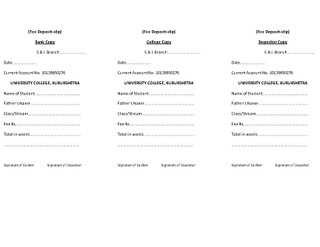Related Research Articles
An end-user license agreement or EULA is a legal contract between a software supplier and a customer or end-user, generally made available to the customer via a retailer acting as an intermediary. A EULA specifies in detail the rights and restrictions which apply to the use of the software.
Eminent domain, land acquisition, compulsory purchase, resumption, resumption/compulsory acquisition, or expropriation is the power of a state, provincial, or national government to take private property for public use. It does not include the power to take and transfer ownership of private property from one property owner to another private property owner without a valid public purpose. This power can be legislatively delegated by the state to municipalities, government subdivisions, or even to private persons or corporations, when they are authorized by the legislature to exercise the functions of public character.
Acts of Parliament, sometimes referred to as primary legislation, are texts of law passed by the legislative body of a jurisdiction. In most countries with a parliamentary system of government, acts of parliament begin as a bill, which the legislature votes on. Depending on the structure of government, this text may then be subject to assent or approval from the executive branch.
A SIM lock, simlock, network lock, carrier lock or (master) subsidy lock is a technical restriction built into GSM and CDMA mobile phones by mobile phone manufacturers for use by service providers to restrict the use of these phones to specific countries and/or networks. This is in contrast to a phone that does not impose any SIM restrictions.

A fee is the price one pays as remuneration for rights or services. Fees usually allow for overhead, wages, costs, and markup. Traditionally, professionals in the United Kingdom receive a fee in contradistinction to a payment, salary, or wage, and often use guineas rather than pounds as units of account. Under the feudal system, a Knight's fee was what was given to a knight for his service, usually the usage of land. A contingent fee is an attorney's fee which is reduced or not charged at all if the court case is lost by the attorney.

The Constitution of South Africa is the supreme law of the Republic of South Africa. It provides the legal foundation for the existence of the republic, it sets out the rights and duties of its citizens, and defines the structure of the Government. The current constitution, the country's fifth, was drawn up by the Parliament elected in 1994 in the South African general election, 1994. It was promulgated by President Nelson Mandela on 18 December 1996 and came into effect on 4 February 1997, replacing the Interim Constitution of 1993. The first constitution was enacted by the South Africa Act 1909, the longest-lasting to date. Since 1961, the constitutions have promulgated a republican form of government.
A software license is a legal instrument governing the use or redistribution of software. Under United States copyright law, all software is copyright protected, in both source code and object code forms, unless that software was developed by the United States Government, in which case it cannot be copyrighted. Authors of copyrighted software can donate their software to the public domain, in which case it is also not covered by copyright and, as a result, cannot be licensed.

In common law systems, land tenure, from the French verb "tenir" means "to hold", is the legal regime in which land "owned" by an individual is possessed by someone else who is said to "hold" the land, based on an agreement between both individuals. It determines who can use land, for how long and under what conditions. Tenure may be based both on official laws and policies, and on informal local customs. In other words, land tenure implies a system according to which land is held by an individual or the actual tiller of the land but this person does not have legal ownership. It determines the holder's rights and responsibilities in connection with their holding. The sovereign monarch, known in England as the Crown, held land in its own right. All land holders are either its tenants or sub-tenants. Tenure signifies a legal relationship between tenant and lord, arranging the duties and rights of tenant and lord in relationship to the land. Over history, many different forms of land tenure, i.e., ways of holding land, have been established.

The second question of the 1967 Australian referendum of 27 May 1967, called by the Holt government, related to Indigenous Australians. Voters were asked whether to give the Commonwealth Parliament the power to make special laws for Indigenous Australians in states, and whether Indigenous Australians should be included in official population counts for constitutional purposes. The term "the Aboriginal Race" was used in the question.
Gazumping occurs when a seller accepts a verbal offer on the property from one potential buyer, but then accepts a higher offer from someone else. It can also refer to the seller raising the asking price or asking for more money at the last minute, after previously verbally agreeing to a lower one. In either case, the original buyer is left in a bad situation, and either has to offer a higher price or lose the purchase. The term gazumping is most commonly used in the United Kingdom and Ireland, although similar practices can be found in some other jurisdictions.
As a legal term, ground rent specifically refers to regular payments made by a holder of a leasehold property to the freeholder or a superior leaseholder, as required under a lease. In this sense, a ground rent is created when a freehold piece of land is sold on a long lease or leases. The ground rent provides an income for the landowner. In economics, ground rent is a form of economic rent meaning all value accruing to titleholders as a result of the exclusive ownership of title privilege to location.
A mortgage broker acts as an intermediary who brokers mortgage loans on behalf of individuals or businesses. Traditionally, banks and other lending institutions have sold their own products. As markets for mortgages have become more competitive, however, the role of the mortgage broker has become more popular. In many developed mortgage markets today,, mortgage brokers are the largest sellers of mortgage products for lenders. Mortgage brokers exist to find a bank or a direct lender that will be willing to make a specific loan an individual is seeking. Mortgage brokers in Canada are paid by the lender and do not charge fees for good credit applications. In the US, many mortgage brokers are regulated by their state and by the CFPB to assure compliance with banking and finance laws in the jurisdiction of the consumer. The extent of the regulation depends on the jurisdiction.
Foreign ownership refers to the ownership of a portion of a country's assets by individuals who are not citizens of that country or by companies whose headquarters are not in that country.
Murabaḥah, murabaḥa, or murâbaḥah was originally a term of fiqh for a sales contract where the buyer and seller agree on the markup (profit) or "cost-plus" price for the item(s) being sold. In recent decades it has become a term for a very common form of Islamic financing, where the price is marked up in exchange for allowing the buyer to pay over time—for example with monthly payments. Murabaha financing is similar to a rent-to-own arrangement in the non-Muslim world, with the intermediary retaining ownership of the item being sold until the loan is paid in full. There are also Islamic investment funds and sukuk that use murabahah contracts.

Land banking is the practice of aggregating parcels of land for future sale or development.
A pre-emption right, right of pre-emption, or first option to buy is a contractual right to acquire certain property newly coming into existence before it can be offered to any other person or entity. It comes from the Latin verb emo, emere, emi, emptum, to buy or purchase, plus the inseparable preposition pre, before. A right to acquire existing property in preference to any other person is usually referred to as a right of first refusal.

A bank is a financial institution that accepts deposits from the public and creates a demand deposit while simultaneously making loans. Lending activities can be directly performed by the bank or indirectly through capital markets.
Personal contract purchase (PCP), often referred to as a personal contract plan, is a form of hire purchase vehicle finance for individual purchasers, similar to both personal contract hire and a traditional hire purchase.

Land grabbing is the large-scale acquisition of land through buying or leasing of large pieces of land by domestic and transnational companies, governments, and individuals.

The Digital Economy Act 2017 is an Act of the Parliament of the United Kingdom. It is substantially different from, and shorter than, the Digital Economy Act 2010, whose provisions largely ended up not being passed into law. The act addresses policy issues related to electronic communications infrastructure and services, and updates the conditions for and sentencing of criminal copyright infringement. It was introduced to Parliament by culture secretary John Whittingdale on 5 July 2016. Whittingdale was replaced as culture secretary by Karen Bradley on 14 July 2016. The act received Royal Assent on 27 April 2017.
References
- 1 2 Fidrich, Robert (2013). "The Return of the White Horse: Land Grabbing in Hungary". Land concentration, land grabbing and people's struggles in Europe. pp. 114–132.
- ↑ Roszík, P. (2011) ’A fenntartható birtokpolitika megvalósíthatóságának akadályai – közte a zsebszerződések’.
- ↑ "Parliament approves modified "pocket contract" law". politics.hu. 2014-02-04. Retrieved 28 October 2016.
- ↑ "Many Foreigners Seek New Hungarian Customers For Pocket Contract Land". Daily News Hungary. 2014-06-24. Retrieved 28 October 2016.